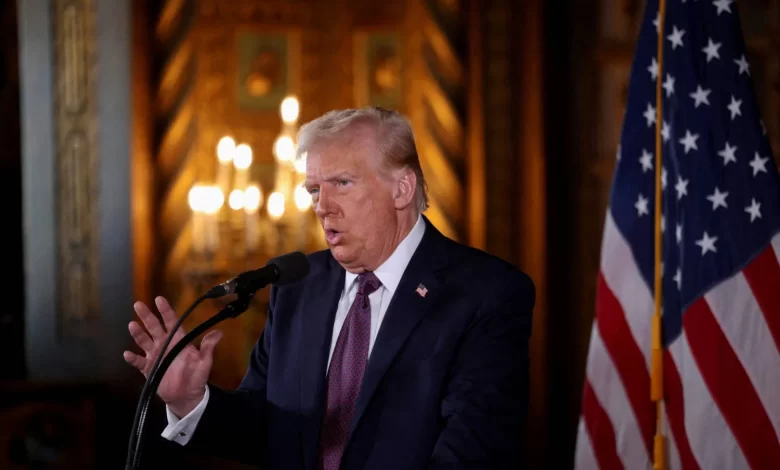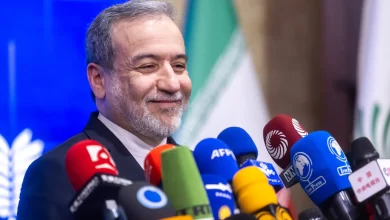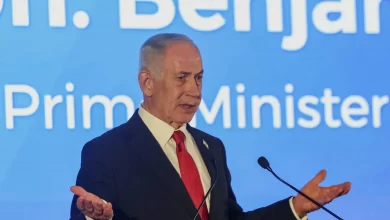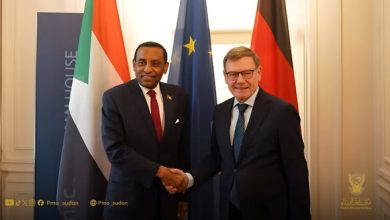InternationalNews
Trump’s team is considering a sanctions plan to facilitate ending the Ukraine war and pressuring Iran

Bloomberg News revealed, citing sources, that advisors to the elected U.S. President Donald Trump are considering a sanctions plan to facilitate a diplomatic agreement between Russia and Ukraine in the coming months, while simultaneously pressuring Iran and Venezuela.
The Biden administration imposed the strongest sanctions on Russian oil by any Western power so far, raising an open question about how Trump would handle the sanctions, given his commitment to ending the war in Ukraine quickly.
There are two main approaches under consideration by the Trump team. Sources said that if the Trump administration believes there is a solution to the Ukraine war on the horizon, it will adopt the first approach, which includes some measures in favor of sanctioned Russian oil producers, which could help in reaching a peace agreement.
They said that the second option would build on the sanctions, increasing the pressure further to enhance influence.
The approach chosen by Trump will ultimately play a pivotal role in the global oil market, as Brent crude futures have risen by about $5 per barrel since the announcement of Biden’s sanctions.
Some analysts expect further gains, which would drive fuel costs up worldwide.
Sources said that Trump’s team’s plans are in the early stages and ultimately depend on the elected president himself.
Last week, Trump said that a meeting with Russian President Vladimir Putin was in preparation, raising the possibility of potential negotiations in the near future to end the war.
Sources mentioned that discussions about the plan include some of Trump’s administration nominees, in addition to former sanctions officials from his first administration, and opinions are being sought from several conservative-leaning think tanks.
The agency said that Trump’s advisors are trying to answer the question that the Biden administration faced: how do we avoid major disruptions in supply and prices in the oil market at a time when Washington is imposing widespread sanctions on three of the world’s largest producers?
And there is another challenge: how to strike the right balance between leveraging economic warfare tools and the desire to maintain the dollar’s status as a global reserve currency?
According to the agency, an early measure of how the Trump team will handle the sanctions imposed on Russia will come in mid-March when the general license allowing the reduction of purchases of Russian energy products expires. If the Treasury Department allows the exemption on certain transactions to lapse, it could increase pressure on the Kremlin.
On Wednesday, U.S. officials introduced measures that make it difficult for Trump to unilaterally lift some sanctions imposed on Russia; Trump will be required to notify Congress if he plans to lift sanctions on Russian companies, which could lead to a rejection vote if congressional members object.
For the Trump team, a more aggressive approach may involve imposing greater sanctions on oil trade and punishing European shipping companies as well as Asian buyers, including major entities in China and India.
As for the other approach, it will rely on more stringent interventions on the tankers transporting Russian oil through Denmark and Turkey, and it may also include issuing general licenses and raising the price cap to over $60 per barrel—steps that would encourage Russian oil to continue flowing into the market.
According to sources, there is a general consensus among Trump’s top advisors to return to a full maximum pressure strategy targeting Tehran, starting with a large package of sanctions hitting key players in the oil industry, which could be implemented as early as February.
During Trump’s first term, a similar approach significantly reduced Iranian oil exports, although they have increased since Biden took office. However, the situation is more complicated in Venezuela, where its president, Nicolás Maduro, was sworn in for another term amid evidence of election fraud, but American oil companies like Chevron also have a presence in the country.
Maduro survived the Trump administration’s maximum pressure strategy, even with its curtailment of the country’s oil exports, and Venezuela withstood Biden officials’ efforts to facilitate free and fair elections.
Mauricio Claver-Carone, the influential advisor during Trump’s first term, will return to a prominent role in Latin American affairs, with a desire to restore the more aggressive stance he helped steer in 2019 when the United States stopped recognizing Maduro as the legitimate president of Venezuela.



